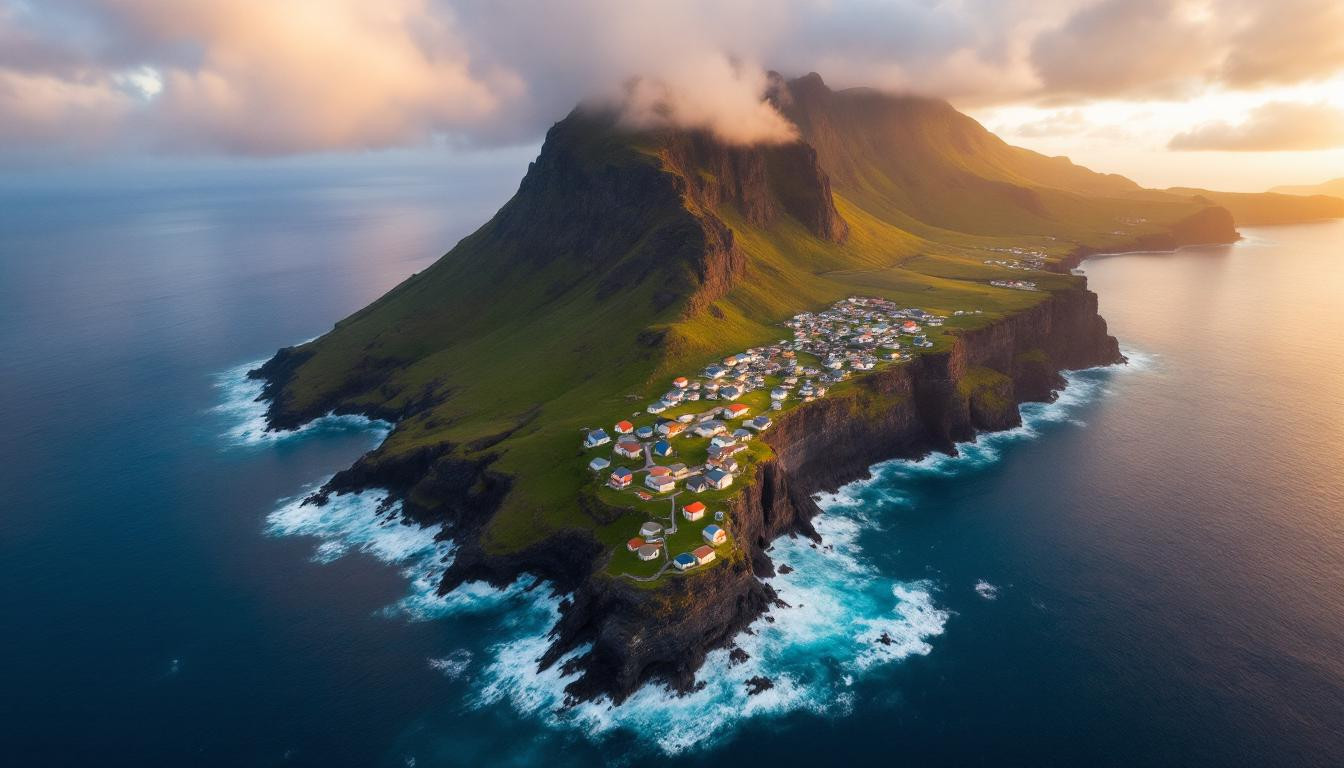Imagine living on an island so isolated that reaching it requires a treacherous six-day sea journey, with no guarantee you’ll even be able to land when you arrive. For the 200 resilient inhabitants of Tristan da Cunha, this isn’t imagination—it’s daily reality. Sitting approximately 6,000 miles from Great Britain, its governing nation, this remote Atlantic outpost represents perhaps the most extreme example of long-distance governance in today’s world.
A community at the edge of the world
Located in the South Atlantic Ocean, Tristan da Cunha’s single settlement—Edinburgh of the Seven Seas—houses its entire population. Despite being technically British, the island sits geographically closer to South Africa, from where the rare supply ships depart. The journey requires crossing some of the world’s most unpredictable waters, making this community one of extraordinary self-reliance.
“Living here demands a special kind of resilience,” explains James Glass, a council member on the island. “We depend on each other completely. When you’re this isolated, your neighbors aren’t just friends—they’re your survival network.”
Why would anyone choose such isolation?
For many residents, the island’s remoteness isn’t a disadvantage but its most precious asset. Like the perfectly ring-shaped streets of certain picturesque villages, Tristan da Cunha’s unique geography creates an environment that feels almost otherworldly—a community where crime is virtually non-existent and where doors remain unlocked.
“There’s a profound sense of security here that’s increasingly rare elsewhere,” notes Dr. Eleanor Hammond, anthropologist studying remote communities. “It’s like being part of an extended family rather than a society.”
Modern challenges in an ancient rhythm
Despite its seeming timelessness, Tristan da Cunha faces contemporary challenges that threaten its future. Climate change impacts the fishing stocks that provide both food and the island’s main export. Meanwhile, younger residents often leave for education abroad, creating demographic concerns that mirror those faced by small historic towns worldwide.
The ultimate test of human adaptability
Life on Tristan da Cunha resembles a masterclass in adaptation. Residents must be generalists—fishers, farmers, mechanics, and caregivers all rolled into one. This adaptability creates a psychological resilience that some researchers compare to the calm centeredness achieved through practices like cold water immersion—both forge mental fortitude through consistent exposure to challenging conditions.
What visitors (rarely) experience
The few adventurous travelers who manage to reach Tristan da Cunha describe an experience akin to stepping back in time. The island offers:
- An extraordinary welcome from residents eager for outside news
- Breathtaking volcanic landscapes untouched by mass tourism
- Glimpses of rare wildlife, including albatross and rockhopper penguins
- A sense of complete disconnection from the modern world
The future at the world’s edge
Despite technological advances like satellite internet, Tristan da Cunha remains fundamentally separate from our interconnected world. Unlike the rapid technological improvements transforming digital systems, life here changes at a glacial pace—which may be its greatest strength.
The island stands as a powerful reminder that human communities can thrive even in extreme isolation. Their society functions on principles of mutual support that create the same sense of safety that our brains experience in the presence of truly humble people—a deep, primal feeling of security.
Could you survive at the edge of civilization?
What would it take for you to thrive in such isolation? Perhaps the residents of Tristan da Cunha have discovered something essential about human connection that our hyper-connected world has forgotten—that true community isn’t measured in followers or likes, but in the unwavering support we offer each other when there’s literally nowhere else to turn.
